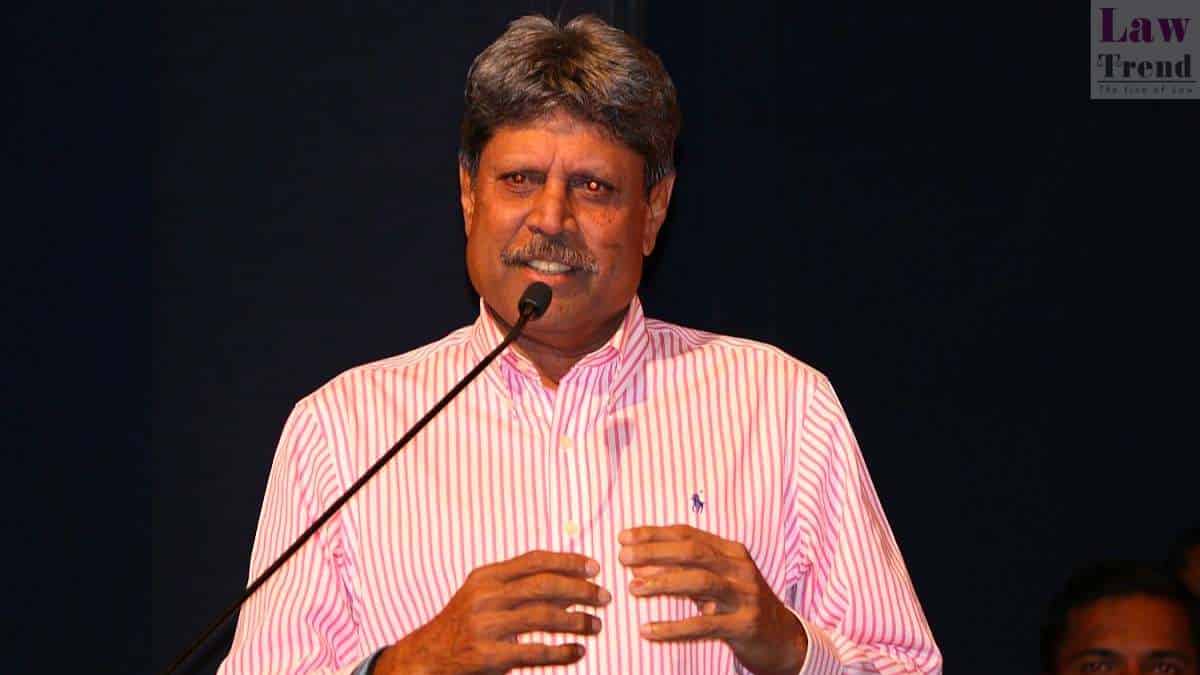New Delhi
The Delhi High Court has recently sought a response from the Centre and Delhi Governments on a plea moved by former Indian cricket
The plea challenges some provisions of the Prevention of Cruelty to Animals Act that allow “the destruction of stray dogs in lethal chambers or by such other methods as may be prescribed” and “the extermination or destruction of any animal under the authority of any law.”
The bench comprising Justices Satish Chander Sharma and Sanjeev Narula issued notice to all respondents and listed the matter for further hearing on December 19, 2023. The plea has been moved by former cricketer Kapil Dev, his wife Romi Dev and Social Activist Anjali Gopalan.
The petition stated that the petitioner’s grievance to the provision of Section 11(1) is against the very nature of clubbing of offences against animals under Section 11 (1) of the Act wherein offences such as killing an animal, beating an animal, and overloading or tethering it is covered under same umbrella offence of cruelty and with the same degree of punishment.
The plea stated, “This is in clear departure from the established principles of penology. The punishment prescribed in Section 11(1) is not commensurate with the gravity of the offence mentioned thereunder. Section 11(1) prescribes a paltry penalty of Rs. 50-100 as a penalty for crimes committed against the animals, furthermore, the Act.”
The plea also challenged Section 11 (3) (a) of the Prevention of Cruelty to Animals Act, 1960. It stated that section 11(3) (a) carves out exceptions for animal husbandry procedures such as dehorning, castration, nose-roping, and branding of animals. However, no guidelines through rules or regulations have been laid down for these procedures to be carried out without inflicting trauma upon the animal. It added that these procedures cause tremendous physical and psychological pain to animals and are manifestly arbitrary in nature. Furthermore, the petitioners seek to challenge Sections 428 and 429 of the IPC as the same is an instance of speciesism suggesting a lack of moral worth or value in animals, creating a hierarchy between living beings placing animals as sentient as humans at the bottom of the ladder.
The stated sections of the IPC are further unfair, unreasonable and arbitrary as the same allows for treating animals as property and morally less important than humans, and since the same have an inbuilt attitude of prejudice therefore creates an arbitrary classification thus being hit by unreasonableness.
Moreover, the plea stated that the petitioners earlier moved the Supreme Court with similar reliefs but the Supreme Court had granted liberty to petitioners to approach the Delhi High Court.
The provisions of the law are inadequate to deal with the gravity of brutality, torture and crime committed against animals within the country. Despite a constitutional mandate existing to protect and improve the natural environment including wildlife and to have compassion for living creatures, the statutes recognise the rights of animals not in terms of them being treated as living beings, but in terms of their value in monetary terms in the marketplace or their value addition to an individual.
The plea added, such an exercise itself is derogatory, unjust and abhorrent to their recognition as a class that deserves protection and tacitly acknowledges the monetized slavery of the animal.
The plea read, the provisions of IPC remain unavailable for the protection of the rights of animals against grave offences such as maiming or killing, especially when such a valuation is not possible, and in cases where the animal is a street animal and not a pet or where the animal is with a handicap or has been rendered unprofitable due to old age.

